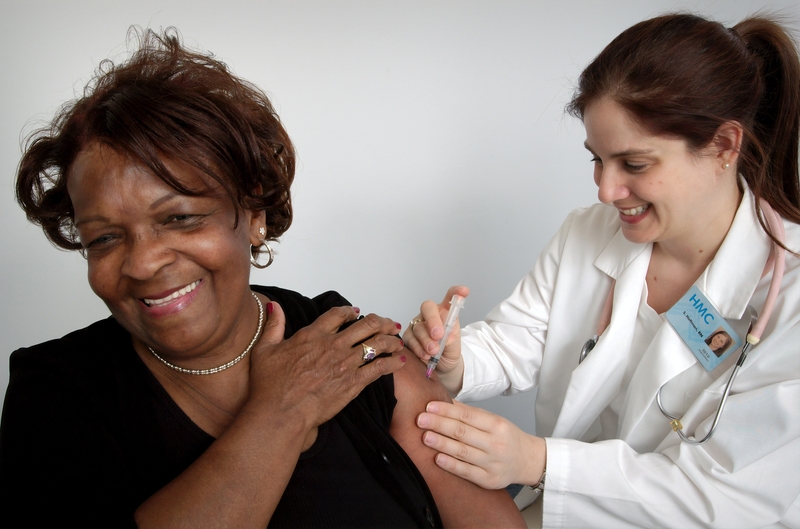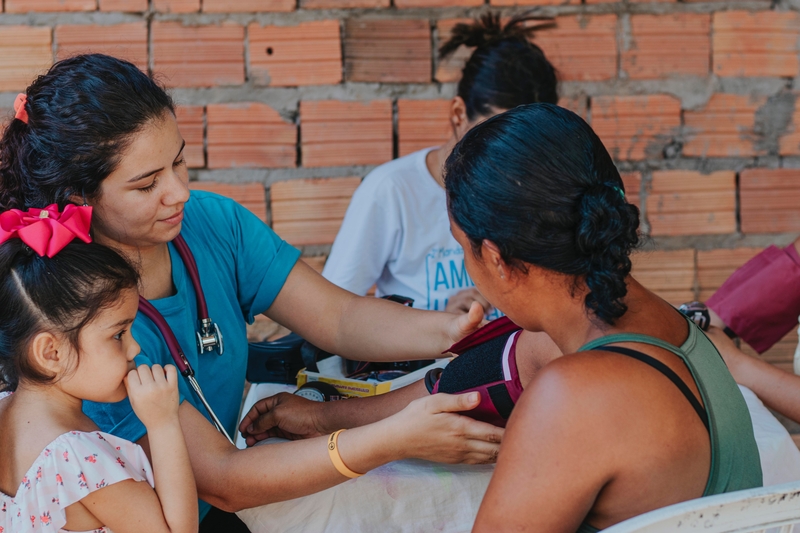The Ins and Outs of the Certification Board for Diabetes Care and Education (CBDCE): Empowering Nurses to Advance Diabetes Care
Brief Insight
The Certification Board for Diabetes Care and Education (CBDCE) is an independent organization that offers certification to healthcare professionals who specialize in diabetes care and education. Their mission is to promote quality diabetes education and care and to empower healthcare professionals to achieve excellence in this field.
- Address: Certification Board for Diabetes Care and Education, 330 E. Algonquin Rd, Suite 4, Arlington Heights, IL 60005
- Phone: 847-228-9795
- Email: info@cbdce.org
- Website: https://www.cbdce.org/

PHOTO: https://unsplash.com/@anikolleshi
CBDCE: Empowering Healthcare Professionals to Achieve Excellence in Diabetes Care
The Certification Board for Diabetes Care and Education (CBDCE) is an independent, non-profit organization that offers certification to healthcare professionals who specialize in diabetes care and education. Their mission is to promote quality diabetes education and care and to empower healthcare professionals to achieve excellence in this field.
The vision of CBDCE is to improve the health of people with diabetes by ensuring that healthcare professionals who provide diabetes care and education are competent and up-to-date with the latest research and best practices in the field.
The values of CBDCE include collaboration, innovation, integrity, and accountability. They believe in working collaboratively with other healthcare organizations and professionals to achieve their mission and vision. They are committed to innovation, always seeking new and better ways to provide quality education and certification. They are also committed to upholding high ethical standards and being accountable to their stakeholders.
The purpose of CBDCE is to develop and administer certification programs for healthcare professionals who specialize in diabetes care and education. They offer two certifications: Certified Diabetes Care and Education Specialist (CDCES) and Board Certified-Advanced Diabetes Management (BC-ADM). These certifications demonstrate that the holder has the knowledge, skills, and experience necessary to provide quality diabetes care and education.
In addition to certification, CBDCE offers a variety of resources and tools to help healthcare professionals stay up-to-date with the latest research and best practices in diabetes care and education. These resources include continuing education courses, webinars, and conferences.
Overall, the Certification Board for Diabetes Care and Education (CBDCE) plays a vital role in ensuring that healthcare professionals who specialize in diabetes care and education have the knowledge, skills, and resources they need to provide quality care to people with diabetes.
Interesting Facts
The CBDCE is the certifying body for diabetes educators in the United States.
The organization was previously known as the National Certification Board for Diabetes Educators (NCBDE) until it changed its name to the CBDCE in 2020.
The CBDCE was founded in 1986 as a non-profit organization with the goal of establishing and maintaining certification standards for diabetes educators.
Setting the Standards for Quality in Diabetes Care and Education Certification
The Certification Board for Diabetes Care and Education (CBDCE) was established in 1986 as the National Certification Board for Diabetes Educators (NCBDE). In 2020, the organization changed its name to CBDCE to reflect its expanded focus on diabetes care and education.
CBDCE is an independent, non-profit organization that is governed by a board of directors, which is made up of healthcare professionals who specialize in diabetes care and education. The board sets the policies and procedures for the organization and is responsible for ensuring that the certification programs meet the highest standards of quality.
CBDCE is also supported by a staff of professionals who manage the day-to-day operations of the organization, including certification program development and administration, as well as continuing education programs and other resources for healthcare professionals.
To become certified by CBDCE, healthcare professionals must meet certain eligibility requirements, including education, experience, and professional references. They must also pass a rigorous certification exam, which is designed to test their knowledge and skills in diabetes care and education. The exam is administered by computer and consists of 200 multiple-choice questions.
CBDCE is committed to maintaining the highest standards of quality in its certification programs. To that end, they regularly review and update their certification exam content to reflect the latest research and best practices in diabetes care and education. They also require certified professionals to maintain their certification through ongoing professional development and recertification every five years.
Overall, the Certification Board for Diabetes Care and Education (CBDCE) is a well-respected organization that plays an important role in promoting excellence in diabetes care and education.

PHOTO: https://unsplash.com/@cdc
Supporting Excellence in Diabetes Care and Education: The Services of the CBDCE
The Certification Board for Diabetes Care and Education (CBDCE) provides a range of services to support healthcare professionals who specialize in diabetes care and education. These services include:
- Certification Programs: CBDCE offers certification programs for diabetes care and education professionals, including the Certified Diabetes Care and Education Specialist (CDCES) certification program. These programs are designed to ensure that healthcare professionals have the knowledge and skills necessary to provide high-quality care to patients with diabetes.
- Certification Exam: CBDCE administers a rigorous certification exam for diabetes care and education professionals. The exam is designed to test the knowledge and skills of healthcare professionals in diabetes care and education and is updated regularly to reflect the latest research and best practices.
- Continuing Education: CBDCE provides a variety of continuing education programs for diabetes care and education professionals. These programs are designed to help healthcare professionals stay up-to-date on the latest research and best practices in diabetes care and education.
- Resources and Support: CBDCE offers a range of resources and support for diabetes care and education professionals, including study materials for the certification exam, a directory of certified professionals, and a community forum for professionals to connect and share information.
- Advocacy and Public Awareness: CBDCE advocates for policies and programs that support diabetes care and education, and works to raise public awareness about the importance of diabetes care and education.
Overall, the Certification Board for Diabetes Care and Education (CBDCE) provides a comprehensive range of services to support healthcare professionals in providing high-quality care to patients with diabetes.
Interesting Facts
The certification process requires candidates to meet strict eligibility criteria, including a minimum of two years of experience in diabetes education, a certain number of hours of continuing education, and passing an exam.
The CBDCE offers three levels of certification: Certified Diabetes Care and Education Specialist (CDCES), Board Certified-Advanced Diabetes Management (BC-ADM), and Certified Diabetes Technology Clinician (CDTC).
Eligibility criteria for CBDCE
CBDCE certification is recognized as a mark of excellence in diabetes education and care, and it demonstrates the professional's commitment to providing high-quality care to patients with diabetes.
The following are the eligibility criteria for obtaining certification from the Certification Board for Diabetes Care and Education:
- Education: Applicants must hold a current and active healthcare professional license or certification and have completed a minimum of 1,000 hours of diabetes self-management education (DSME) within the past four years.
- Experience: Applicants must have two years of professional practice experience in diabetes education and care. Experience can include direct patient care or indirect care, such as research or administrative positions.
- Continuing Education: Applicants must complete at least 15 hours of continuing education in diabetes within two years before applying for certification. These hours must cover the content areas outlined in the Certification Examination Content Outline provided by the CBDCE.
- Examination: Applicants must pass the Certification Examination for Diabetes Care and Education. The exam consists of 200 multiple-choice questions and is administered in a computer-based format.
Healthcare professionals who meet the education, experience, continuing education, and examination requirements are eligible to obtain certification from the Certification Board for Diabetes Care and Education. This certification is a prestigious recognition of the professional's knowledge and expertise in diabetes education and care.

PHOTO: https://unsplash.com/@dimhou
Types of Certification and Recertification Requirements by CBDCE
The Certification Board for Diabetes Care and Education (CBDCE) provides several types of certification for healthcare professionals who specialize in diabetes care and education. These certifications include:
- Certified Diabetes Care and Education Specialist (CDCES): This certification is for healthcare professionals who have experience in providing diabetes care and education to patients. It requires passing an examination and meeting the eligibility criteria outlined by the CBDCE.
- Board Certified-Advanced Diabetes Management (BC-ADM): This certification is for healthcare professionals who have advanced knowledge and experience in diabetes management. It requires passing an examination and meeting the eligibility criteria outlined by the CBDCE.
- Certified Diabetes Technology Clinician (CDTC): This certification is for healthcare professionals who specialize in the use of diabetes technology, such as insulin pumps and continuous glucose monitors. It requires passing an examination and meeting the eligibility criteria outlined by the CBDCE.
- Certified Insulin Pump Trainer (CIPT): This certification is for healthcare professionals who specialize in training patients to use insulin pumps. It requires passing an examination and meeting the eligibility criteria outlined by the CBDCE.
Recertification is required for all CBDCE certifications every five years. The recertification process involves completing continuing education hours and demonstrating professional practice activities. The specific requirements for recertification vary depending on the type of certification held.
For CDCES recertification, candidates must complete a minimum of 75 continuing education hours and demonstrate 1,000 hours of professional practice activities in the past five years. For BC-ADM recertification, candidates must complete a minimum of 75 continuing education hours and demonstrate 500 hours of professional practice activities in the past five years. For CDTC and CIPT recertification, candidates must complete a minimum of 30 continuing education hours and demonstrate professional practice activities in the past five years.
The Certification Board for Diabetes Care and Education (CBDCE) provides several types of certification for healthcare professionals who specialize in diabetes care and education. Recertification is required every five years and involves completing continuing education hours and demonstrating professional practice activities. These certifications are recognized as a mark of excellence in diabetes education and care and demonstrate a commitment to providing high-quality care to patients with diabetes.
Interesting Facts
The CDCES certification is the most commonly held certification among diabetes educators, with over 18,000 certified individuals as of 2021.
The BC-ADM certification is a more advanced certification for those with extensive knowledge and experience in managing complex cases of diabetes.
The CDTC certification is focused on the use of diabetes technology, such as insulin pumps and continuous glucose monitors.
How to Prepare for Certification Exam by CBDCE?
Preparing for the Certification Examination for Diabetes Care and Education provided by the Certification Board for Diabetes Care and Education (CBDCE) requires a strong knowledge of diabetes care and education concepts, as well as familiarity with the exam format and content. The following are steps to help prepare for the certification exam:
- Review the exam content outline: The CBDCE provides an exam content outline on its website, which outlines the topics covered in the exam. Reviewing this outline will help you identify your strengths and weaknesses in various content areas and create a study plan accordingly.
- Utilize study materials: The CBDCE offers several study materials, such as the CBDCE Candidate Handbook and Diabetes Education Review Guide. These materials can help you familiarize yourself with the exam format, content, and exam-taking strategies.
- Attend exam preparation courses: The CBDCE offers exam preparation courses, which provide an in-depth review of the exam content and strategies for exam-taking.
- Study independently: Reviewing textbooks, research articles, and other relevant resources can help you deepen your knowledge and understanding of diabetes care and education concepts.
- Take practice exams: Taking practice exams can help you identify areas of weakness and develop strategies for answering exam questions.
The Certification Examination for Diabetes Care and Education consists of 200 multiple-choice questions, which must be answered within four hours. The exam is computer-based, and candidates receive their results immediately upon completion.
The exam covers a wide range of topics, including diabetes pathophysiology, treatment strategies, self-management education, and psychosocial issues related to diabetes. Questions may be presented in a variety of formats, including case studies, scenarios, and short-answer questions.
Preparing for the Certification Examination for Diabetes Care and Education provided by the Certification Board for Diabetes Care and Education (CBDCE) requires a strong knowledge of diabetes care and education concepts, familiarity with the exam format and content, and effective exam-taking strategies. Following the steps outlined above can help you prepare for the exam and increase your chances of success.

PHOTO: https://unsplash.com/@rustyct1
The Advantages and Benefits of Certification by the CBDCE
Certification by the Certification Board for Diabetes Care and Education (CBDCE) is a prestigious accomplishment that carries many advantages and benefits for healthcare professionals who work in the field of diabetes care and education. Here are some of the main advantages and benefits of becoming CBDCE-certified:
- Recognition of expertise: CBDCE certification recognizes healthcare professionals who have demonstrated their expertise in diabetes care and education. It demonstrates that they have met the high standards set by the certification board and are committed to providing high-quality care to patients with diabetes.
- Enhanced career opportunities: CBDCE certification can enhance career opportunities for healthcare professionals. Many employers prefer to hire certified professionals, and some may require certification for certain positions. CBDCE certification can also lead to higher salaries and promotions.
- Professional development: CBDCE certification requires ongoing professional development and continuing education, which can help healthcare professionals stay up-to-date on the latest advancements and best practices in diabetes care and education.
- Networking opportunities: CBDCE certification can provide opportunities for healthcare professionals to network with others in the field, which can lead to new job opportunities, collaborations, and knowledge-sharing.
- Improved patient outcomes: CBDCE-certified healthcare professionals are equipped with the knowledge and skills to provide high-quality care to patients with diabetes, which can lead to improved patient outcomes, including better glycemic control, fewer complications, and better quality of life.
- Credibility: CBDCE certification provides healthcare professionals with increased credibility in the eyes of their peers, patients, and employers. It demonstrates a commitment to excellence and a dedication to providing the highest quality care to patients with diabetes.
Becoming CBDCE-certified offers many advantages and benefits to healthcare professionals who work in diabetes care and education. It can enhance career opportunities, provide ongoing professional development, facilitate networking, improve patient outcomes, and increase credibility. By earning certification from the CBDCE, healthcare professionals can demonstrate their expertise and commitment to providing the highest quality care to patients with diabetes.
Interesting Facts
The CBDCE is accredited by the National Commission for Certifying Agencies (NCCA), which ensures that its certification programs meet rigorous standards for quality and reliability.
The CBDCE also offers a variety of resources and support for diabetes educators, including continuing education opportunities, networking events, and advocacy efforts to promote diabetes education and prevention.
The Disadvantages and Limitations of Certification by the CBDCE
While certification by the Certification Board for Diabetes Care and Education (CBDCE) has many advantages and benefits, there are also some potential disadvantages and limitations that healthcare professionals should be aware of before pursuing certification. Here are some of the main disadvantages and limitations of becoming CBDCE-certified:
- Cost: The cost of CBDCE certification can be a barrier for some healthcare professionals. There is an application fee, an exam fee, and ongoing maintenance fees for maintaining certification. These costs may be prohibitive for some professionals, especially those who work in low-paying jobs or in areas with limited resources.
- Time commitment: Becoming CBDCE-certified requires a significant time commitment. Healthcare professionals must complete an application, prepare for the exam, and complete ongoing professional development and continuing education requirements to maintain certification. This can be challenging for professionals who have busy schedules or other commitments.
- Limited scope: CBDCE certification is specific to diabetes care and education. While this is a valuable area of expertise, healthcare professionals who are interested in other areas of healthcare may not find the certification as useful or relevant.
- Exam difficulty: The CBDCE certification exam is rigorous and challenging. Some healthcare professionals may struggle to pass the exam, which can be discouraging and may limit career opportunities.
- Limited recognition: While CBDCE certification is recognized by many employers and professional organizations, it may not be as widely recognized as other certifications in the healthcare field. This could limit its value for some healthcare professionals.
While certification by the Certification Board for Diabetes Care and Education (CBDCE) offers many advantages and benefits, it also has some potential disadvantages and limitations that healthcare professionals should consider. These include cost, time commitment, limited scope, exam difficulty, and limited recognition. Before pursuing certification, healthcare professionals should carefully weigh these factors and consider whether CBDCE certification is the right choice for their career goals and aspirations.

PHOTO: https://unsplash.com/@soucarlosmagno
The Certification Process for the Certification Board for Diabetes Care and Education (CBDCE)
Becoming certified by the Certification Board for Diabetes Care and Education (CBDCE) is a rigorous process that requires careful planning, preparation, and commitment. Here is a detailed explanation of the steps involved in the certification process:
Step 1: Eligibility Requirements
Before applying for the CBDCE certification exam, healthcare professionals must meet the eligibility requirements. These include a current, active license as a registered nurse, registered dietitian, or pharmacist in the United States or Canada, and at least 2 years of experience in diabetes care and education.
Step 2: Application
Once healthcare professionals have determined their eligibility, they can apply for the certification exam through the CBDCE website. The application includes personal information, education and work experience, and professional references.
Step 3: Exam Scheduling
After the application is approved, candidates can schedule their certification exam. The exam is administered through a computer-based testing center, and candidates can choose a testing location and time that is convenient for them.
Step 4: Exam Preparation
Preparing for the CBDCE certification exam requires a significant amount of study and review. The exam covers a wide range of topics related to diabetes care and education, including assessment, planning, intervention, and evaluation of care. Candidates can prepare for the exam by reviewing the CBDCE Candidate Handbook, which outlines the exam content and provides sample questions and study materials.
Step 5: Exam Day
On the day of the exam, candidates must arrive at the testing center at least 30 minutes before their scheduled exam time. They must bring two forms of identification, including one government-issued photo ID. The exam is administered over a four-hour period, and candidates must answer 200 multiple-choice questions.
Step 6: Exam Results
After completing the exam, candidates will receive their preliminary exam results immediately. The final results will be available within four to six weeks after the exam. Candidates who pass the exam will receive a certificate from the CBDCE indicating their certification status.
Step 7: Maintaining Certification
To maintain CBDCE certification, healthcare professionals must complete ongoing professional development and continuing education requirements. These requirements must be completed every five years to renew certification.
In conclusion, becoming certified by the Certification Board for Diabetes Care and Education (CBDCE) requires careful planning, preparation, and commitment. The process includes meeting eligibility requirements, applying for the exam, scheduling the exam, preparing for the exam, taking the exam, and maintaining certification. By following these steps, healthcare professionals can achieve CBDCE certification and demonstrate their expertise in diabetes care and education.
- Eligibility: To apply for the CBDCE certification exam, healthcare professionals must meet the eligibility requirements, including having an active license and at least two years of experience in diabetes care and education.
- Application: Candidates must submit an application through the CBDCE website, providing personal information, education and work experience, and professional references.
- Exam Scheduling: Once the application is approved, candidates can schedule their certification exam at a computer-based testing center.
- Exam Preparation: The CBDCE certification exam covers a wide range of topics related to diabetes care and education, and candidates must prepare thoroughly for the exam by reviewing the Candidate Handbook and studying sample questions and materials.
- Exam Day: Candidates must arrive at the testing center early, bring two forms of identification, and answer 200 multiple-choice questions over a four-hour period.
- Exam Results: Candidates receive their preliminary exam results immediately, with final results available within four to six weeks. Those who pass the exam receive a certificate indicating their certification status.
- Maintaining Certification: Healthcare professionals must complete ongoing professional development and continuing education requirements every five years to renew CBDCE certification.
FAQ
What is the cost of the CBDCE certification exam?
The cost of the exam is $350 for non-members of the American Association of Diabetes Educators (AADE) and $280 for members.
How long does the CBDCE certification last?
CBDCE certification lasts for five years. Healthcare professionals must complete ongoing professional development and continuing education requirements to renew their certification.
What topics are covered on the CBDCE certification exam?
The exam covers a wide range of topics related to diabetes care and education, including assessment, planning, intervention, and evaluation of care.
How many questions are on the CBDCE certification exam?
The exam consists of 200 multiple-choice questions.
What is the passing score for the CBDCE certification exam?
The passing score for the exam is 70%
Can I retake the CBDCE certification exam if I fail?
Yes, candidates who fail the exam may retake it. However, there are restrictions on how often the exam can be taken.
How can I prepare for the CBDCE certification exam?
Candidates can prepare for the exam by reviewing the CBDCE Candidate Handbook, which outlines the exam content and provides sample questions and study materials. Additional study resources are also available through the AADE.
What is the purpose of CBDCE certification?
CBDCE certification is designed to recognize healthcare professionals who demonstrate expertise in diabetes care and education. It provides a way for professionals to demonstrate their knowledge and skills to employers, colleagues, and patients.